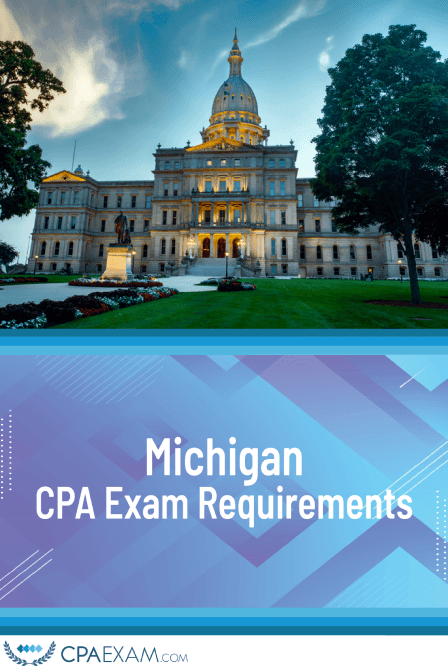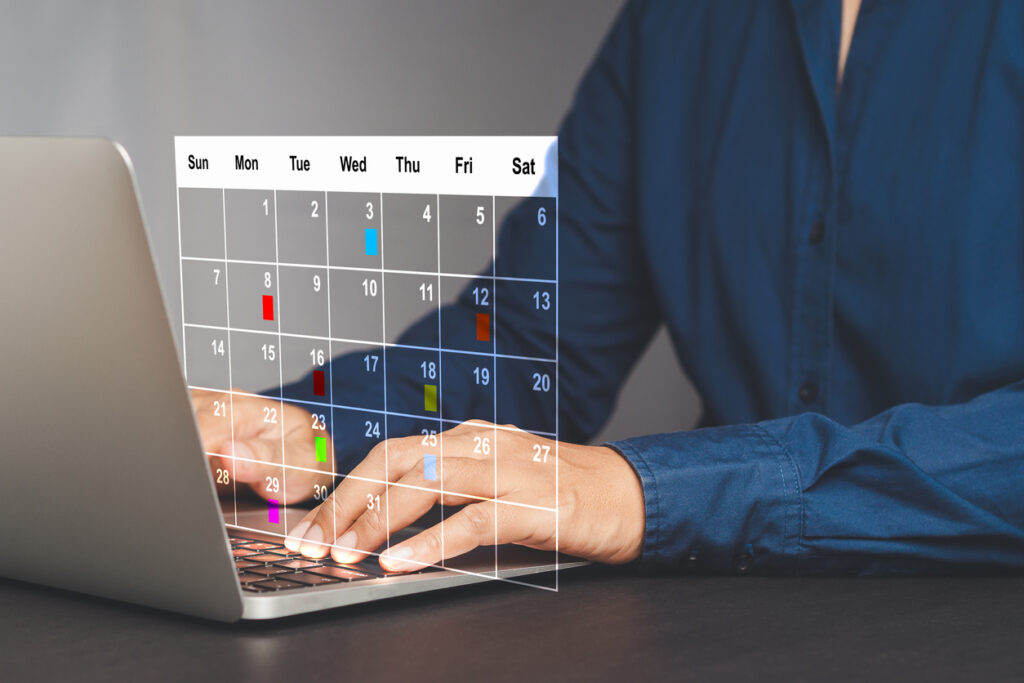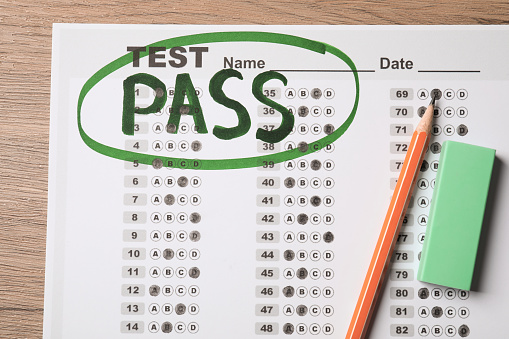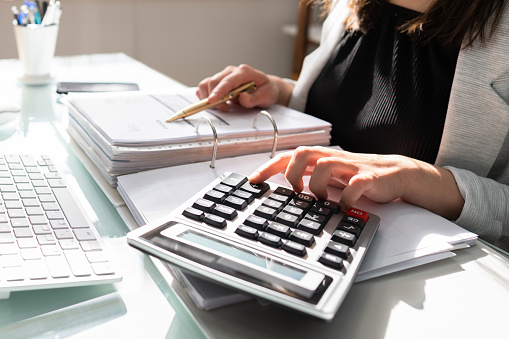CPA Exam Requirements in Michigan
Becoming a Certified Public Accountant (CPA) in Michigan requires meeting specific educational, exam, and experience standards. This article outlines the Michigan CPA exam requirements, licensure process, and other essential details for aspiring CPAs.
Staying informed about Michigan’s evolving licensing criteria is crucial for success. With clear guidelines and resources available, candidates can confidently approach the CPA exam. By adhering to these demanding requirements, aspiring accountants can unlock opportunities for professional growth and advancement in Michigan’s dynamic financial landscape.
Table of Contents

| CPA Exam Requirements Michigan – Overview | |
| Educational Hours Required for Exam | 120 Semester Hours |
| Educational Hours Required for Licensure | 150 Semester Hours |
| Residency Required | Not required |
| Degree Required | Bachelor’s or Master’s |
| Minimum Age | Not required |
| Application Fee | $147.00 |
| Additional Requirements | Michigan Board of Accountancy Site |
Educational Requirements for Michigan CPA Candidates
To qualify for the Uniform CPA Examination, candidates must complete a baccalaureate degree or higher from a regionally accredited institution. The degree must include a minimum of 150 semester hours, which encompasses:
- Accounting Coursework: At least 30 semester hours in accounting courses such as:
- Financial accounting
- Accounting theory
- Managerial accounting, including cost accounting
- Auditing
- Governmental fund accounting
- Accounting systems and controls
- General Business Subjects: A minimum of 39 semester hours in general business subjects, which can include:
- Finance
- Management
- Business law
- Economics
- Marketing
If the degree is obtained from an equivalent educational institution, official transcripts must verify the coursework.
CPA Exam Requirements Michigan Residents Must Meet
The CPA exam is composed of four sections, each of which must be passed within an 18-month time frame. Candidates may apply for one or more exam sections but must meet specific eligibility criteria before scheduling.
- Exam Sections:
- Auditing and Attestation (AUD)
- Business Environment and Concepts (BEC)
- Financial Accounting and Reporting (FAR)
- Regulation (REG)
- Application Process:
- Submit an application through the CPA portal, ensuring all education requirements are met.
- Provide official transcripts from your educational institution.
- Pay the required fees for each exam section application.
- Score Release:
- Scores are typically released in a predetermined time frame. Candidates can check the status through their Okta account on the CPA portal.
Residency Requirements for Michigan CPA Exam Eligibility
Candidates must be residents of Michigan or employed in the state at the time of application. Proof of residency may include a Michigan driver’s license, state ID, or other documentation.
Experience Requirements for Licensure
To obtain a Michigan CPA license, candidates must fulfill specific experience requirements:
- Qualifying Experience:
- Complete 2,000 hours of qualifying experience in public practice, industry, or government accounting.
- Tasks may include financial advisory services, internal auditing, or preparation of financial reports.
- Time Frame:
- Experience must be earned within five calendar years before or after passing the CPA exam.
- Verification:
- The experience must be verified by a licensed CPA.
Professional Ethics and Continuing Education
Candidates must complete a professional ethics course approved by the Michigan Board of Accountancy before licensure. Additionally, maintaining a CPA license requires completing continuing professional education (CPE) courses to stay updated on accounting standards and practices.
Preparing for the CPA Exam
Proper preparation is crucial for success on the CPA exam. Consider the following steps:
- Enroll in a CPA exam preparation course to strengthen your knowledge of accounting topics like financial accounting and managerial accounting including cost.
- Utilize study resources tailored to each of the four exam sections.
- Develop a study schedule to manage the exam’s intensive demands.
Costs Associated with the CPA Exam and Licensure
Several fees are associated with the CPA journey in Michigan, including:
- Application Fees: Payable when submitting the initial exam section application.
- Examination Fees: Separate fees apply for each of the four sections.
- Licensure Fees: These include costs for obtaining and renewing the CPA license.
Key Steps to Becoming a Michigan CPA
- Meet the educational requirements, including completing a bachelor’s degree with 150 semester hours.
- Apply for the Uniform CPA Examination, ensuring all eligibility criteria are met.
- Pass all four exam sections within the specified time frame.
- Complete 2,000 hours of qualifying experience under a licensed CPA.
- Satisfy the professional ethics course requirement.
- Submit an application for licensure and pay the required fees.
Maintaining Your Michigan CPA License
Once you obtain a Michigan CPA license, maintaining it involves meeting renewal requirements, including continuing education and compliance with ethical standards.
- Continuing Professional Education (CPE):
- Michigan CPAs must complete 80 hours of CPE during each two-year renewal period.
- Specific topics, such as professional ethics, may require a minimum number of hours.
- CPE can include courses on financial accounting, auditing, accounting systems, and financial advisory services.
- Renewal Process:
- Submit renewal applications through the CPA portal.
- Verify completion of required CPE hours.
- Pay the renewal fee to maintain your license in active status.
Failure to comply with these requirements may result in suspension or revocation of the CPA license.
Tips for Aspiring Michigan CPAs
Successfully navigating the CPA journey requires careful planning and preparation. Below are strategies to streamline the process:
- Create a Timeline:
- Plan your academic path to ensure you meet the educational requirements before applying for the exam.
- Schedule the four exam sections strategically to complete them within the 18-month window.
- Utilize Resources:
- Join professional organizations, such as the Michigan Association of CPAs (MICPA), for networking and guidance.
- Access CPA exam resources, including practice tests and CPA exam preparation courses.
- Gain Relevant Experience:
- Seek internships or entry-level roles in public practice, government, or corporate accounting to fulfill the qualifying experience requirements.
By staying organized and leveraging available resources, CPA candidates can increase their chances of success in achieving licensure.
Additional Information for Existing Candidates
If you are an existing candidate who has completed parts of the CPA exam in another state, Michigan may allow transfer of credits. Ensure your credentials meet the state’s education and experience requirements.
By adhering to the Michigan CPA requirements, candidates can achieve their goal of becoming a certified public accountant. Following the outlined steps ensures compliance with all prerequisites for the CPA exam and licensure process.
Michigan State Board of Public Accountancy![]() Address: Bureau of Professional Licensing (BPL) Dept. of Licensing and Regulatory Affairs P.O. Box 30670 Lansing, MI 48909
Address: Bureau of Professional Licensing (BPL) Dept. of Licensing and Regulatory Affairs P.O. Box 30670 Lansing, MI 48909![]() Phone: (517) 241-0199 Fax: (517) 241-9416
Phone: (517) 241-0199 Fax: (517) 241-9416![]() Email: bplhelp@michigan.gov
Email: bplhelp@michigan.gov![]() Web: www.michigan.gov
Web: www.michigan.gov![]() Application form: Michigan CPA Application Form
Application form: Michigan CPA Application Form
Recommended Reading

CPA Exam Dates and Blackout Dates
|
CPAExam.com Team
CPA Exam Dates and Continuous Testing: Everything You Need to KnowUnderstanding CPA Continuous TestingWhat Continuous Testing Means for CandidatesU.S. CPA Exam CandidatesInternational CPA Exam CandidatesThe CPA Evolution and Exam Structure ChangesNotice to Schedule (NTS) and Its Role in SchedulingSelecting the Right Exam DatesHow to Schedule Your CPA Exam AppointmentCPA Exam Score Release Dates: Continuous Testing ImpactCPA Exam Scores and Release SchedulesFinancial Considerations: CPA Exam FeesCPA Exam Sections: Core and Discipline BreakdownCore Sections vs. Discipline SectionsTesting Discipline Sections Under Continuous TestingPlanning for Stress-Free Exam DatesFinal Preparation for Exam Day Download Your State’s CPA Exam Requirements CPA Exam Dates and Continuous Testing: Everything You Need to Know Preparing for the CPA Exam involves more than mastering accounting principles and tax law—it’s also important to navigate the exam scheduling process and understand when… Read More

What CPA Exam is Easiest?
|
CPAExam.com Team
For aspiring CPAs, one of the most common questions is, “What CPA exam is easiest?” Deciding where to begin your CPA exam journey is crucial. It can influence your study… Read More

What Skills Bookkeepers Transfer Into Career As a CPA
|
CPAExam.com Team
The Skills Bookkeepers Can Transfer Into a Career as a CPA The terms “bookkeeper” and “accountant” are often used interchangeably by the general public, and for good reason. While bookkeeping… Read More
Find the Best CPA Review Courses in 2025
Choosing the best CPA Review course can feel overwhelming, but it doesn’t have to be. This article breaks down three of the most popular options—Becker, Surgent, and NINJA—and offers key insights to help you decide. Find out how factors like budget, learning style, and adaptability can impact your choice and why getting this decision right is critical for your CPA Exam success. Getting this choice right is critical to your success as a CPA candidate and becoming a CPA. Get the best course here.